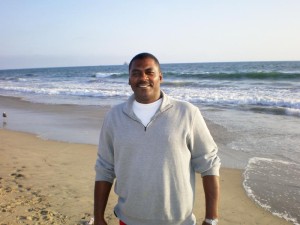 It was the morning of November 18, 1978, and I was in Jonestown. I was waiting in the food line for breakfast when I was called out, along with Clifford Gieg. We were told to take the Temple boat, the Cudjoe, down river, and come back the next day. I said goodbye to my mom and my girlfriend. My girlfriend had the saddest look on her face, and I didn’t know why.
It was the morning of November 18, 1978, and I was in Jonestown. I was waiting in the food line for breakfast when I was called out, along with Clifford Gieg. We were told to take the Temple boat, the Cudjoe, down river, and come back the next day. I said goodbye to my mom and my girlfriend. My girlfriend had the saddest look on her face, and I didn’t know why.
Clifford and I rode to Port Kaituma in the dump truck. The driver, Ed Crenshaw, told us that by the time we returned the next day, he and the others would be dead, but that Clifford and I would go back to the States and kick it like we used to. Nothing like that was going to happen, I said to him. We boarded the boat, went down river, and docked at one of the places where we had a store. Around midnight, we went to bed.
We were awakened to the sound of people getting on the boat and rifles being cocked. It was the Guyanese army, who had come to take us to jail. We didn’t know why. The next day, they told us that more than 400 people were dead in Jonestown. A numbness washed over me.
My mind flashed back to Thursday night, when I first arrived in Jonestown. Jim Jones was having a meeting with the people. He said he was going to be like Chief Joseph. This was going to be his last battle. Then I thought about what Ed Crenshaw had told us. When we got back, they would all be dead. My heart sank. I told the police they were lying. I didn’t want to believe it.
My mom; my oldest sister Shirley; my three baby brothers, Chris, Karl, and Allen; my baby sister, Jennifer; my little nephew, Isaac; my three cousins, Gloria, Janice and Brenda; and Gloria’s baby Camella. They were all there.
But wait a minute. The police said only 400 people. Maybe the others ran into the jungle and got away. Maybe my relatives were safe.
They would not let us go back to Jonestown because of disease. As the days went by, the numbers got higher, and with each increase, my hope seeped away, until all of it was gone.
The navy towed the boat back to Georgetown. When we arrived at the police station, I saw guns laid out on the table. The guns of Jonestown.
* * * * *
A month and a half passed before I finally returned to the States. I had reservations about going back, didn’t want anyone saying, I told you so. But my wife and kids were there. That made the return worthwhile.
Three years later, my father died. Almost three years to the date of the loss of his family.
In 1982 by a former member of the church introduced me to cocaine. I was hooked for five years. I stopped using in 1987, and was called to appear on The Oprah Winfrey Show in 1988 to tell my story. I told a story of survival, of falling to drugs, of overcoming my addiction, the kind of inspiring story that plays well on Oprah. Five years later, though, I was divorced, and a year after that, relapsed into drugs. This time, I stayed hooked for more than 10 years, until 2006. Finally, realizing I was wasting my life away, I checked myself into rehab.
Today, I have my kids and my grandkids back in my life. I have a wonderful girlfriend who supports me. I have my own apartment, and I work for one of the largest bus and rail companies in California. I am so thankful to God for my deliverance from drugs, because my life was worse the second time around. I lost everything. Smoked it all up. But God is good. He has given me another chance at life. and I thank Him so very much.
(Herbert Newell can be reached at Herbnewell58@gmail.com. His complete set of writings for this site may be found here.)